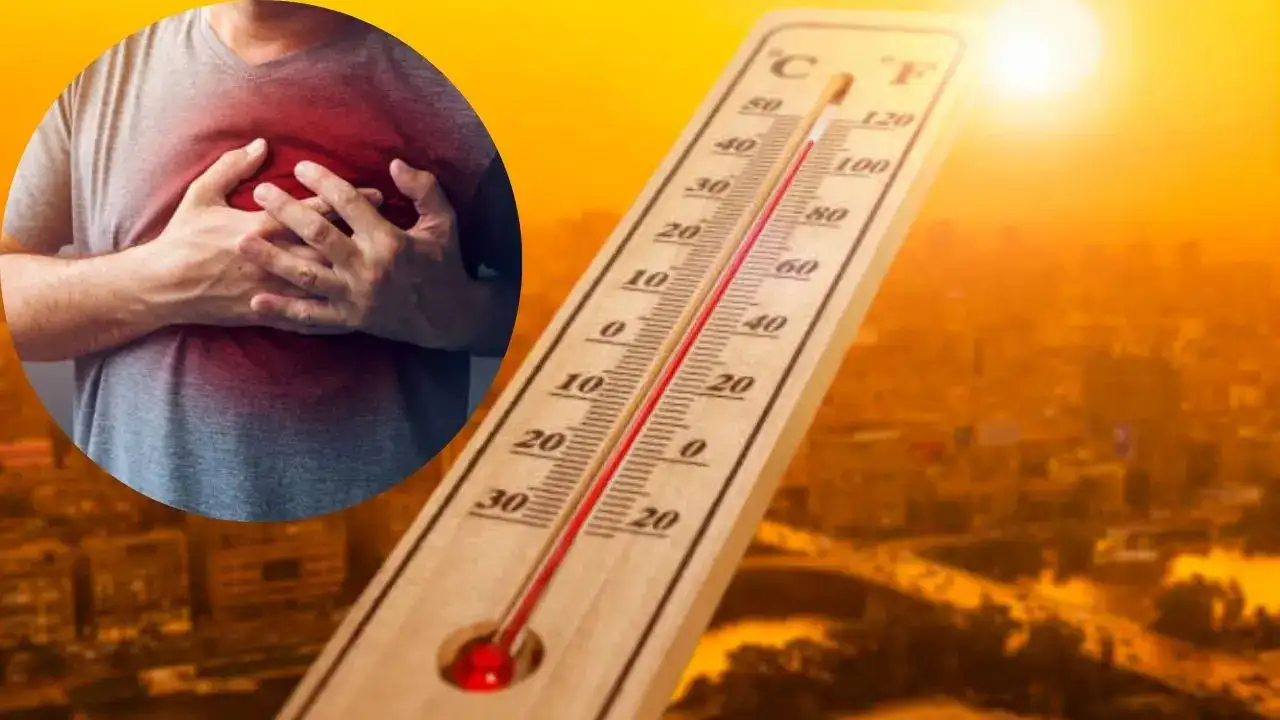
To regulate body temperature, your heart works extra hard making sure the blood flows smoothly.
The Indian Meteorological Department has issued an orange alert for a heatwave across many areas in North India for the next two to three days. According to experts, high temperatures can be extremely dangerous for your health, especially your heart, as sweltering heat can lead to heart attacks and strokes.
According to doctors, scorching summer heat not only makes you sweat more, but it also burdens our essential body function, posing a significant risk of health complications due to exhaustion and dehydration. To regulate body temperature, your heart works extra hard, making sure the blood flows smoothly.
And so, it puts a strain on the crucial organ, and a lack of proper cardiovascular care can make one susceptible to events like heart attacks. Doctors say high temperatures also change the viscosity of the blood, specifically making it thinner, which means it does not clot as easily. This may be especially dangerous for people who are already on blood-thinning medication. Those who have disrupted heart function—who have had prior heart attacks, strokes, and other cardiovascular issues—are usually more susceptible to the impacts of the change in temperature.
Heat also acts as a physiological stressor, prompting the release of stress hormones like adrenaline and cortisol. These hormones increase heart rate and blood pressure, and chronic or repeated exposure to such stress can damage arteries and exacerbate cardiovascular conditions.
How do certain heart medications affect heat tolerance?
There are a few medications that impact the heart negatively when the body is exposed to heat. There are three main classes of medication that can do this.
Beta-blockers
Most commonly prescribed for blood pressure but also used to help manage heart failure and heart attacks, beta blockers can make people more vulnerable to heat because they reduce blood flow to the skin and make it harder for the body to cool itself down and regulate temperature.
Aspirin
According to studies, aspirin – a blood thinner – makes people more sensitive to temperature changes.
Diuretics
Also known as water pills, these are prescribed to people with kidney problems, congestive heart failure, or high blood pressure. Diuretics encourage the body to urinate more frequently, which, during hotter weather, can cause electrolyte imbalances and make it harder for the body to regulate its temperature.
How to keep your heart healthy during high temperatures?
Doctors say there are a few mitigation strategies for lessening your chances of potentially developing heart disease or another heart-related illness as a result of excessive heat exposure. A few of these include:
- Try to avoid temperature changes as much as possible. Try to stay in air-conditioned places as much as possible. If you work outside for a living, bring cold packs and cold towels to help keep you cool as you work.
- Stay hydrated as much as possible, as this is especially important if you are on any aspirin, beta-blockers, or diuretics.
- Drink sufficient fluids to help support normal body function.
- Wear cotton clothing
- Always seek a doctor's opinion if you are not feeling well.
